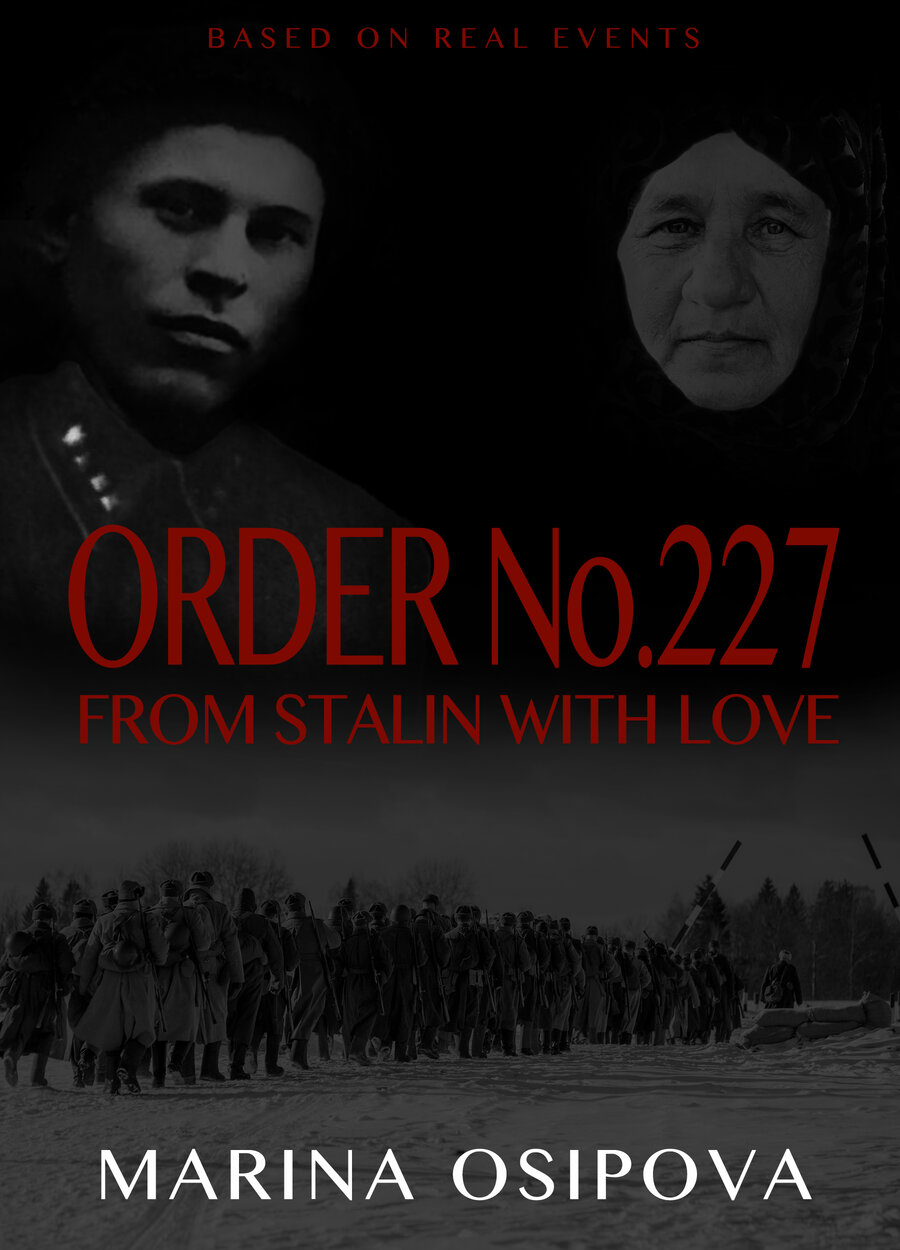

The first year of the Great Patriotic War. The Soviets suffer heavy losses, mass retreat, and desertion. Nazi Germany penetrates deep into the territory of the Soviet Union. The Ukraine, Belarus, Baltic republics, huge territories of the European part of the Soviet Union are lost to the German invasion. Over 70 million Soviet people are under the yoke of the oppressor. Combat goes on at the gates of the Northern Caucasus and Kuban with its oil and grain. The Wehrmacht advances toward Stalingrad. The Soviet people start losing faith in the Red Army. The Soviet Union is upon the brink of destruction. Such is the situation in the Summer of 1942. On July 28, 1942, Stalin releases Order No. 227, the so-called, “Not a step back.”
The short story examines human nature in the direst of circumstances and demonstrates how far human kindness can go and how much it can change.
From the Author:
The story is based on my grandfather's history and one of the events of the Great Patriotic War as it was and is called on the post-Soviet space. The main facts are accurate, but they are presented through fictional characters except for my grandfather. I took the liberty to give names to thirteen of the Soviet people who, among 427,910 men, shed their blood in defending their motherland in punitive military units. In Matryona, I hope I have conveyed a collective image of a Russian woman who, despite her difficult fate and the life full of hardship, retained her humanity and tenderness.
Reader's Favorite Medal - 5 Stars
Chanticleer International Book Awards (Shorts & Novellas) - Finalist Award
“Such a powerful message in one short story! Definitely a must-read for anyone who wants to understand the Soviet political system and the Russo-German conflict.”—Ellie Midwood, a USA Today bestselling and award-winning historical fiction author
“This is a wonderful story! It took me to places and to a time I can barely imagine and allowed me to gain new understanding.”—David Samaras, author of A Man with a Stick against A Man With A Rock and The Journey and the Face in the Mirror
“I loved this story. I felt I was inside a classic Russian novel—and I guess I was. I also couldn't help but think of Poem Without a Hero, by Anna Akhmatova. Most of us will never experience anything like the place and time in which Stalin held sway over everyone's lives. That's why a story like Order No. 227 is such an important work. We need to know how lucky most of us are. Plus, this is just a terrific story!” —Richard Goodman, an Assistant Professor of English at the University of New Orleans, the author of French Dirt: The Story of a Garden in the South of France, The Soul of Creative Writing, and other books. He has written on a variety of subjects for many national publications, including The New York Times.
“Oh, my god, this was moving. I read this with tears rolling down … Stories like this are an important window to how the world was, helping us maybe understand a little better the actions of ordinary people under the (inhumane) circumstances.”—ReadsInTheGarden
“Wow!! I’m speechless … Truth being told is always a powerful thing.”—pamarella
“This story, like so many historical fictions, is vital to our culture, as they remind us of what has happened, the atrocities and the dark days of war, and they should be a lesson to us all, especially now, when leaders of some nations are pushing their own agenda, their own “ism”, and are using the same platform which Hitler used to create division, racism and hatred, instead of pressing for unification and peace, they are attempting to build walls between people and nations. That road has always, as history teaches us, and this book reminds us, is the road to disaster. It’s a short, but very worthwhile read.”—Real Laplain
“It’s a short sharp message that Marina Osipova is passing on to us, that the inhumanity of war should not continue to be the heritage we carry through to the future of our civilization.”—Induna
“This brief but spectacular novella packs a powerful emotional punch. Complex, interesting characters and a compelling perception of place make this fusion of truth and fiction soar.”—Pamela Allegretto
“The story that needed to be told. Remarkable story and one that gives this generation a role model we might just need.”—truthsetsusfree
“Osipova’s work reaches out across the world and touches us, and for that time, she lends herself to us, and she stays with us until we see what she sees, the way she sees it, and why. And when we do, we are the better for it.”—Linda Lee Greene
“A good reminder in our current world of what war does to man and a woman, and how despite the evil and despair, how humanity can still exist all in the name of fighting for one’s country.”— DGKaye